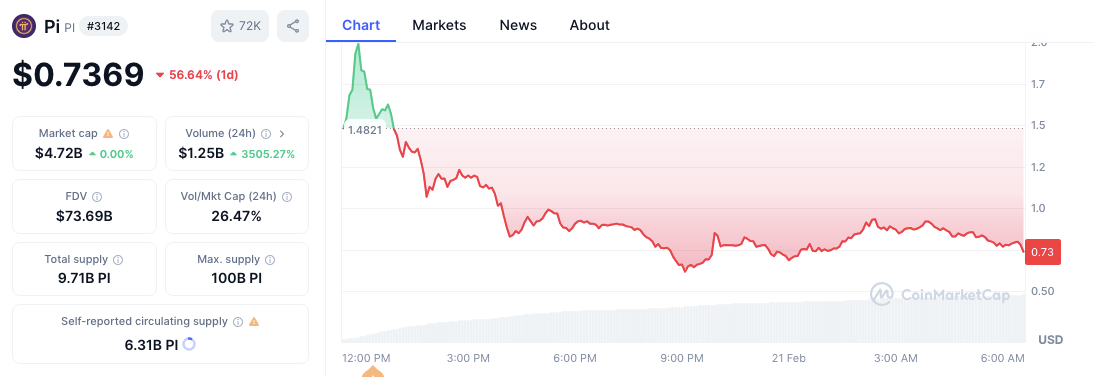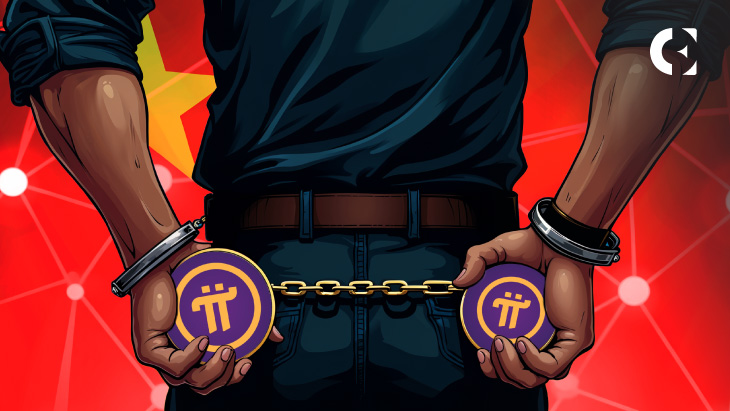- Bybit CEO, Ben Zhou, rejects listing Pi Network on his exchange, citing scam concerns
- Chinese authorities warn Pi Network targets seniors, causing financial risks
- Pi token faces massive price drop after launch, with ongoing market volatility
Pi Network is facing growing scrutiny. This is especially true from Bybit CEO Ben Zhou and Chinese authorities. Specifically, Zhou has publicly condemned the network as a scam. To back this stance, he stated that Bybit will not list its token.
His reasoning is based on concerns about its authenticity. Adding to the pressure, the Chinese government has also issued a warning on the project. This official warning raises questions about its validity as the risks the protocol mounts are seen especially pertinent to elderly individuals.
China Had Officially Warned About Pi Network in 2023
In 2023, the Hengyang Public Security Bureau in China had issued a public warning about the Pi Network.
In its warning, Chinese authorities had directly labeled the blockchain as a scam. Crucially, the warning pointed out the risk of personal data leaks, highlighting potential financial losses by way of loss on elderly pensions.
Related: Pi Network Listing Splits Crypto Exchanges: Bybit Says No
Industry Skepticism Grows: Bybit CEO Rejects Listing Claims
Addressing rumors directly, Zhou rejected allegations that Pi Network had been turned down for a listing by Bybit, explaining that no listing request had ever been made. Instead, he clarified that no listing request had ever been made. He also accused the Pi Network team of failing to address the serious credibility concerns.
Contrasting Bybit’s stance, some exchanges, such as OKX and Bitget, have chosen to list the Pi token. However, despite these listings, most of the crypto industry remains wary of Pi Network. The lack of transparency surrounding Pi Network is what has sparked concerns about its operations, particularly after Zhou’s statements.
Related: Pi Network Supporter Differentiates Between Coins and Tokens
Reflecting the industry sentiment, many in the crypto community called for investigation when exchanges consider listing tokens like Pi, and some applauding Bybit for taking a cautious approach.
However, a few investors have also expressed frustration with Pi Network’s lack of customer support, sharing stories of lost tokens and failed attempts to contact the team for help.
Pi Network Price Plummets After Initial Post-Launch Spike
Following its mainnet launch on February 20, Pi Network experienced an initial price surge. Specifically, Pi Network saw a rise of $1.99, an increase of 36%.
However, this positive momentum was short-lived as the price quickly dropped by over 50%. In just hours, it reached as low as $0.9123.

The Pi token was trading at $0.7369 during the time of writing, with a 56.64% decline.
Despite this significant price drop, surprisingly, the token’s market cap still stands at $4.72 billion. Adding to this market activity is a trading volume of $1.25 billion over the past day.
Disclaimer: The information presented in this article is for informational and educational purposes only. The article does not constitute financial advice or advice of any kind. Coin Edition is not responsible for any losses incurred as a result of the utilization of content, products, or services mentioned. Readers are advised to exercise caution before taking any action related to the company.







